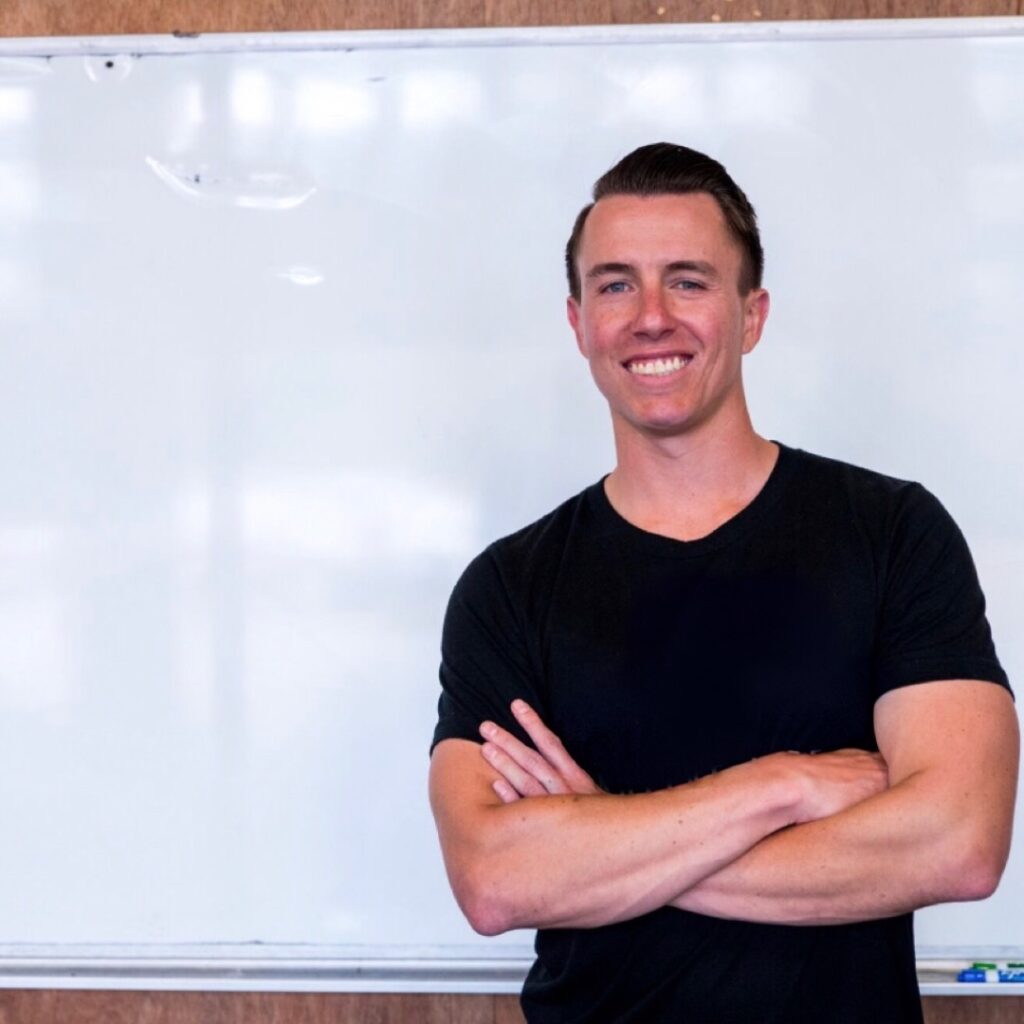Bio
Dr. Ray has spent his career specializing in working within the fitness and rehab space. With a background in CrossFit since 2008 which then progressed to Physical Therapy school graduating in 2014, Ray sought out to provide the highest quality of care and education for those who seek to advocate for themselves. As a clinician, Ray worked in various outpatient orthopedic settings, Division 1 athletics, and ultimately niched himself into the functional fitness space blending his passions of strength and conditioning with physical therapy at his cash-pay practice in a gym setting.
Once it became time to scale his impact, Ray shifted focus from the clinical world to the education front where he developed course curriculum, ran business operations, and began mentoring coaches and rehab professionals all over the world. Now he owns Engage Movement which helps coaches and rehab professionals build their ideal business with a unique blend of in-person and virtual offers so they can do more of the things they enjoy without sacrificing their career.

For Episode Show Notes with Links Click Here
Q&A with Ray Gorman
What is your desired transformation(s) from this alternative journey?
I’m still figuring that out. But I’ve realized a lot about who I want to be and who I don’t want to be. I am constantly working on my skills as a leader. Looking to be the one that I never had and provide opportunities to my team as they come. I think the process of this journey is more important than the destination. I love the process of business, that certainly helps.
How would you describe the journey or mission you are on? What’s the destination you are working towards?
Our mission is to make sure that great coaches and rehab professionals have a mechanism to stay in the field without sacrificing their earning potential to do so. That often means betting on yourself and taking some risk.
What is your story behind the first sense of awareness that things weren’t quite right with your rehab career?
When we started talking money transitioning from staff PT to director, I started to question the earning potential of the career. Then I saw the way to make more money was just working more hours and I saw that there had to be better way to accelerate growth. Started to see limitations in-person and online, figured to combine the two and get the best of both worlds.
What are some personal struggles you went through while finding and then transitioning to an alternative career (or your business)? How did you overcome them?
I could go on this one for days. Depression, anxiety, stress… building someone else vision were all tough for me. At one point I thought I had the rest of life figured out growing with a company I was working with, but as things started to change, we started to drift apart. That led to a split which at the time, felt like a really bad breakup, but ended up being the best thing that ever happened. Took some time to myself, reset. Realized what I needed to do and figured out what was important to me as well. I also went to therapy as well for my mental health journey (happy to touch on this subject if you’d like)
What are the practical (non-obvious) skills that make you a great fit for your work now?
I look at business a lot like an evaluative process with clients or like writing strength programs. The concepts are the same. Break down the problem in front of you, create a plan of attack, program your work, execute, see if you got the anticipated results. If you did, repeat, if not, what variables will you change. So I actually feel like I use my critical thinking skills that were developed clinically a ton as a business owner and coach.
What was the biggest frustration or challenge in making your transition from bootstrapping your business up to doing it full-time?
Reality. It takes longer than you think. You’re going to go through iterations, but you can’t keep changing things for the sake of changing them… too many people do this. It feels more personal hearing “no” when it’s truly yours, this is so true when doing sales for yourself for the first time. You have to develop the right skillset to toughen up your skin a bit and get comfortable failing, since that’s always where the biggest lessons are.
What is the biggest problem you see in the rehab space or rehab private practice space?
I see more and more providers talking about leaving before even starting once the reality of the finances get brought into play. We are constantly chasing volume to make up for declining reimbursement and I’m not sure I see a mechanism for change there. I think we are lagging now, but as the higher education consumer becomes more savvy, I think we will start to see a decline in those looking to go into the OP ortho realm. We need a better societal positioning message as well.
Don’t miss an episode! Subscribe below to your favorite content channel
If you have not done so already, subscribe to the podcast.
This ensures that you do not miss an episode!




